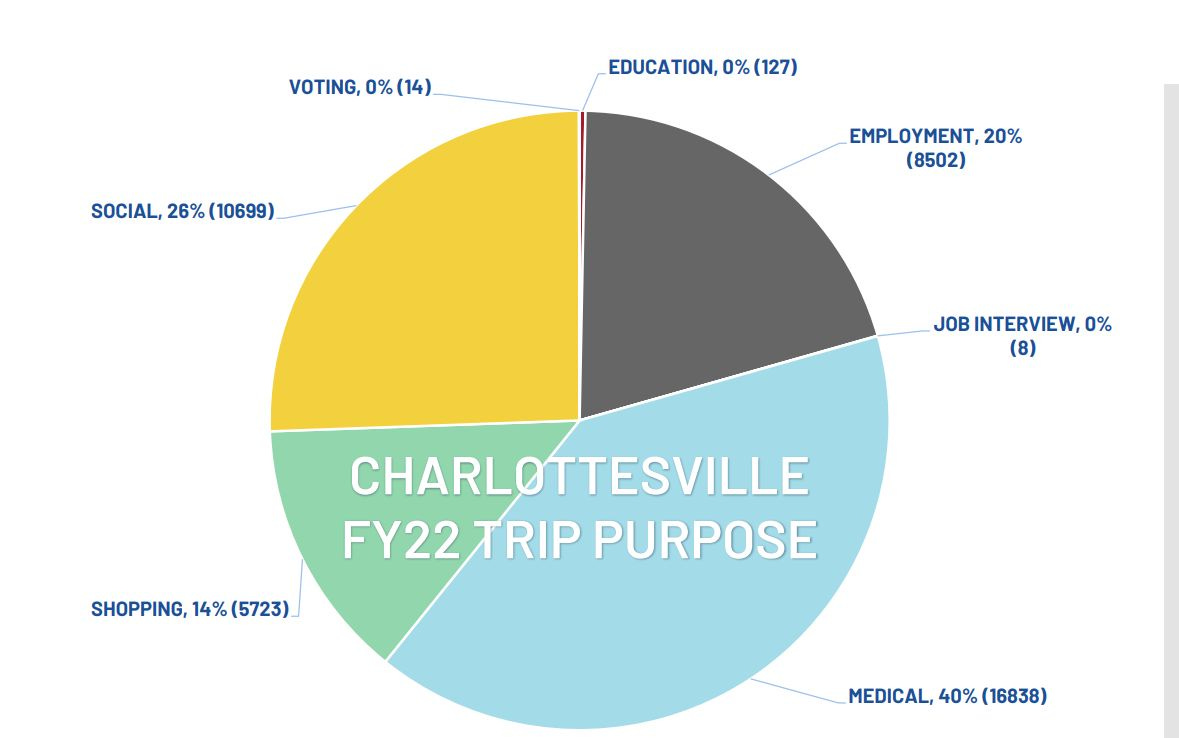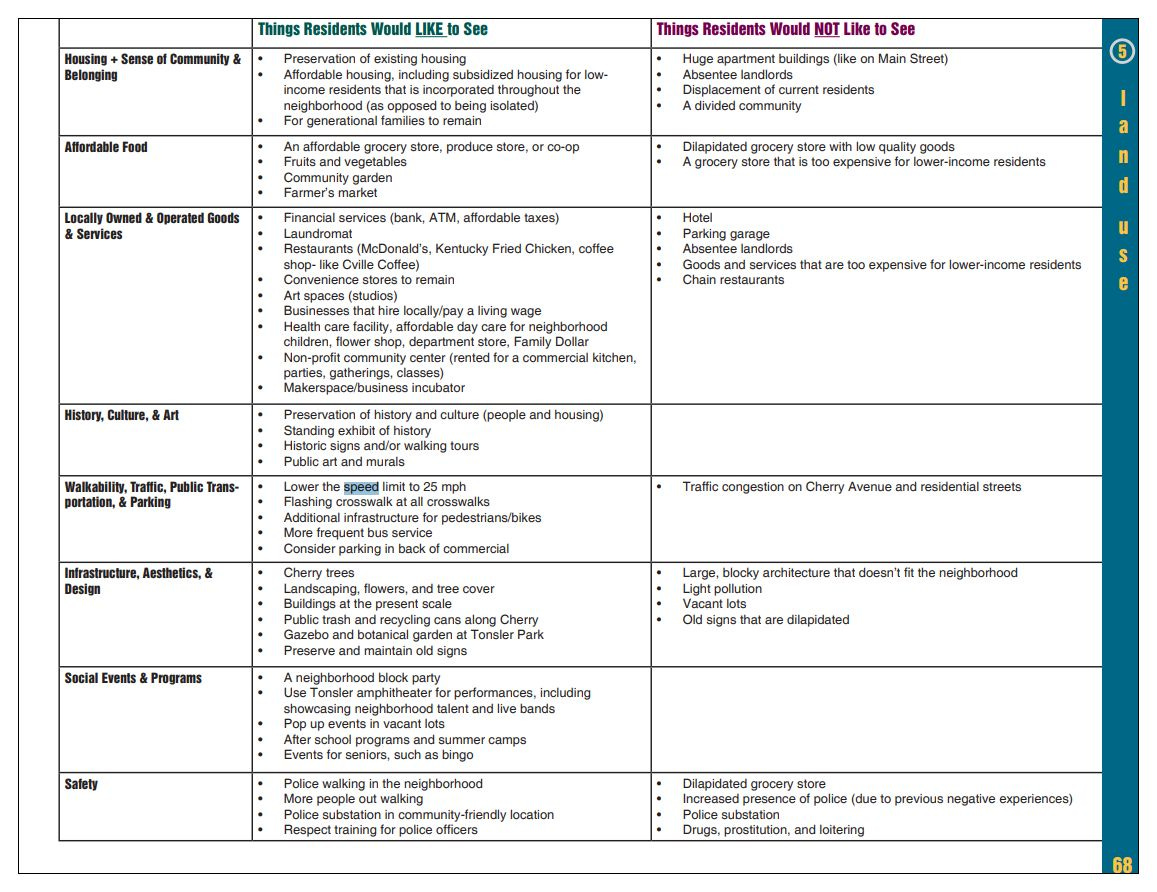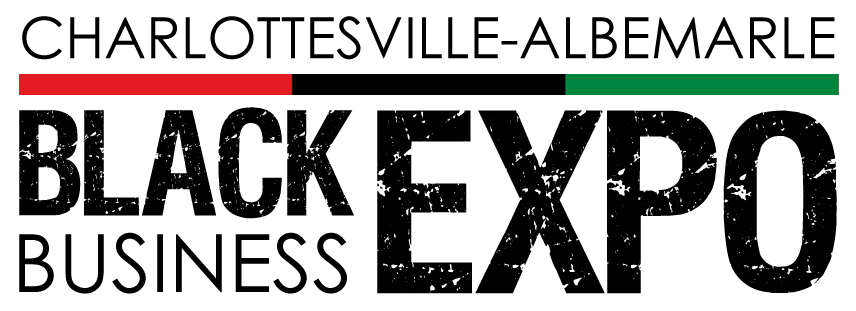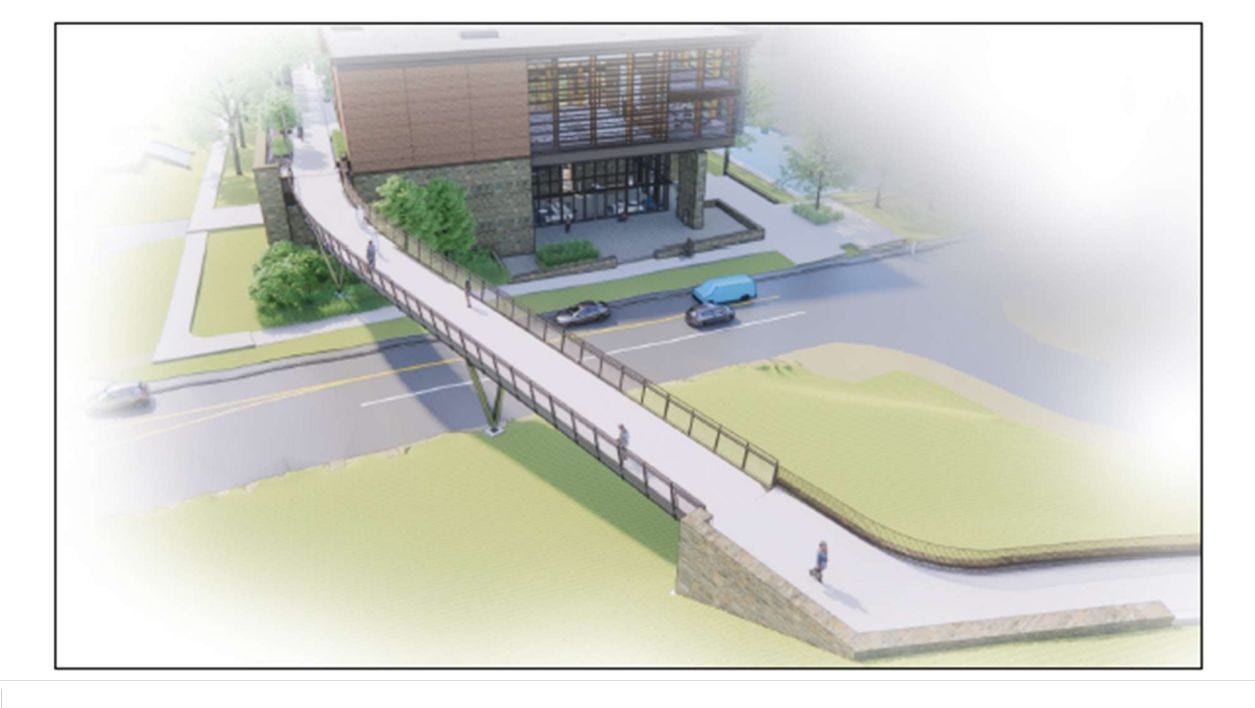Not only is today the first full day of autumn, but September 23 is also the Great American National Pot Pie Day. Granted, this fake holiday was created by the manufacturer of one brand of savory pies, but the days that follow are for festive feasts of fall food. Fuel, perhaps, for more installments of Charlottesville Community Engagement. I’m your host, Sean Tubbs.
On today’s show:
Today is the first day of early voting across Virginia
Jaunt’s CEO goes before Charlottesville City Council to give an update
A public hearing over air rights for a new pedestrian bridge at UVA is delayed
Charlottesville follows staff’s recommendation on lowering speed limits on Cherry Avenue
City Council approves a special use permit for 119 units on Jefferson Park Avenue despite having misgivings
First shout-out: Black Business Expo coming up on September 24
In today’s first Patreon-fueled shout-out, WTJU 91.1 FM wants you to know about the Charlottesville-Albemarle Black Business Expo, coming up tomorrow at the Ix Park from 10 a.m. to 7 p.m. Vendor registration is currently underway for the all-day event which will feature DJ sets, panel discussions, a business pitch contest, and live music from both Richelle Claiborne and Ebony Groove. Learn more about the event at blackbusinessexpo.org.
Early voting begins today in Virginia
There are 46 days until Election Day, which means the window to vote early in Virginia has opened. People who would like to vote and are eligible can register through October 17. This is the first election since new Congressional districts were drawn by Special Masters and approved by the Virginia Supreme Court late last December.
For more information, consult any of the following depending on where in the region you live.
Council consider spending $30K toward governance study; Jaunt hopes to play a role
On Monday night, Charlottesville City Council heard the first of two readings on $30,000 toward a governance study being overseen by the Thomas Jefferson Planning District to determine the best way to move toward a Regional Transportation Authority. I’ll have more details on that in a future installment of the newsletter, but earlier in the meeting they got a presentation from Ted Rieck, the executive director of Jaunt.
“Our sole purpose for existing is to really empower people and give them independence in their lives,” Rieck said. “People want to have their own way of living and we think our transportation service provides people that opportunity.”
Jaunt was formed in 1975 as a paratransit agency intended to give rides to senior and disabled individuals to medical appointments.
In recent years under a different CEO, Jaunt began providing fixed-route commuter service to Crozet, the North Fork Discovery Park, and other areas. Rieck said Jaunt wants to also be a provider of microtransit service that works on-demand.
“We think people’s lives would be better served by a more spontaneous transportation system and we’re looking at doing that at different parts of our service area,” Rieck said.

That service area, by the way, is a 2,700 square mile area, much larger than either Charlottesville Area Transit or the University Transit System.
In the meantime, Jaunt is also stepping up marketing efforts to attract riders who stopped using the service during the pandemic.
Rieck made no immediate mention of the Regional Transit Vision Plan or the governance study that’s underway to determine how to move toward a Regional Transportation Authority. He also didn’t mention that CAT won the grant to provide microtransit in Albemarle County during a pilot project expected to begin next year.
City Councilor Michael Payne asked Rieck how he saw Jaunt fitting into that work. Rieck said Jaunt is participating and hopes to be part of the future.
“The model that exists in the Richmond area has independent systems kind of being coordinated by an authority so that’s one particular model,” Rieck said. “Another model is a combined transit system, one agency giving all doing all things. A lot will depend on what that study shows.”
Rieck also said Jaunt would like to bid on the microtransit service to be piloted in Albemarle. If not, they will seek to offer microtransit elsewhere.
Rieck also appeared before City Council in July. Read my story on that appearance. Jaunt’s annual shareholder meeting is on October 12. I’ll have more on regional transit from the September 22 meeting of the Regional Transit Partnership in a future edition of the program.
Public hearing delayed on air-rights for new UVA pedestrian bridge
The University of Virginia plans to build a new pedestrian bridge across Emmet Street just north of an existing one that crosses from the Curry School of Education to Brown College at Monroe Hill. The new structure would span from the new Contemplative Commons building to Newcomb Hall Plaza.
“So this new bridge is both in a better location for pedestrian circulation and would be fully [Americans with Disabilities Act] accessible,” said James Freas, the city’s director of Neighborhood Development Services.
The bridge will be 23 and a half feet above Emmet Street. That exceeds the city’s requirement that a bridge be 16 feet above, which requires permission from the city. That requires a public hearing, but there was an error.
“Now unfortunately, the required advertisement was not put in for the public hearing tonight so it appears we are going to have to take up this item again and your next meeting and conduct a public hearing at that time,” Freas said.
There was something in the staff report that did not come up during the discussion which is worth mentioning for those interested in following along with Charlottesville’s efforts to get moving on Smart Scale projects. Here’s a long quote from the staff report.
“Staff’s consideration of this request was supported by the resolution of an obstacle that had been holding up advancement of the Emmet Street streetscape project. Property acquisition costs, primarily those for University owned land along Emmet near the Ivy Road intersection, had placed that project well over budget. Given the University’s strong interest in the completion of that project, they have agreed to providing the necessary easement at no cost so that the project can move forward in conjunction with their development in the Ivy corridor.”
More on the pedestrian bridge, Smart Scale progress, and transportation related stories in future editions of Charlottesville Community Engagement.
Council reduces speed limit on Cherry Avenue
Cherry Avenue runs for a mile and a half through central Charlottesville and serves as a major roadway for people seeking to get to the University of Virginia Health System. It also runs through a residential neighborhood and passes by both Johnson Elementary School and Buford Middle School. That’s not the only reason people have been asking for the speed limit to be lowered, but it’s a big reason for why it’s happening now.
“Especially with the renewed push for safe routes to schools and the recent school bus shortage, staff’s attention has been redirected to some of our older efforts,” said Brennen Duncan, the city’s traffic engineer.
The reduction of the speed limit is also high on the list of tasks the Fifeville Neighborhood Association would like the City to undertake.
“The neighborhood association is very much in support of changing the speed limit to 25 miles per hour and certainly excited to see the recommendations for any reduction but very much hoping you all will consider reducing the entire portion of the road that’s under consideration for new speed limit to 25 miles per hour,” said Sarah Malpass, vice president of the Fifeville Neighborhood Association.
Duncan’s recommendation was to lower the limit to 25 miles per hour from Cleveland Avenue to Roosevelt Brown Boulevard and to 30 miles per hour from the section from Roosevelt Brown to Ridge Street.
“This is much more of a commercial nature and connects directly to Ridge Street with its speed limit of 40 miles per hour which was recently reduced and is on the direct route to the UVA hospital,” Duncan said.
Hearing the concern of the Fifeville Neighborhood Association, City Councilor Brian Pinkston asked a question.
“What would be the objection to lowering the section from Ridge Street to Roosevelt Brown by another five miles an hour?” Pinkston asked.
“I believe the objection is if you do so you are creating a situation in which police has to enforce a speed limit that probably not be adhered to,” Duncan said.
Vice Mayor Juandiego Wade said he used to make similar recommendations for speed limits when he worked for Albemarle County as a transportation planner. He supported Duncan’s recommendation.
“I concur with staff, I literally did hundreds of these when I did planning for the county for a lot of neighborhood streets in the county,” Wade said.
Mayor Lloyd Snook said he didn’t want to second guess city staff, but pointed out a problem.
“The crosswalks at the bottom of the hill by Tonsler Park are some of the most dangerous crosswalks we’ve got in the city right now,” Snook said, while also acknowledging the steep grade that descends down from Ridge Street.
Traffic calming efforts have already taken place at that location, including narrowing lanes, installing a bump-out, and putting in a rapid flashing beacon.
Pinkston said he would support 25 mph all the way to Ridge Street.
“People in the neighborhood have asked for that,” Pinkston said. “It seems like a small thing to do. Perhaps it sets up a situation where it can’t be enforced. I know that there are going to be more good things happening on Cherry in that area and the small area plan called for that.”

In recent years, there’s been a resurgence of activities at Tonsler Park, including a vibrant basketball league that attracts hundreds of people on game day. A new trail connecting Tonsler Park to Blue Ridge Commons and 7 ½ Street will open on October 1. Woodard Properties has purchased the former Estes IGA and plans to redevelop it, and are currently updating the façade of the Cherry Avenue Shopping Center which the company purchased in July 2021.
With Councilor Sena Magill absent, Michael Payne’s vote would determine if the item would get a majority, if there would be a stalemate, or if the matter would be deferred to another meeting when all Councilors were present.
“I would say my instinct is that 25 mph the whole way would be the best but because I’m not a traffic engineer and I have absolutely no knowledge of that work, I have a really hard time feeling in any way confident about that instinct because I have no idea what the implications or engineering reasons for the recommendations are,” Payne said.
That left a stalemate, and both Pinkston and Snook opted to support Duncan’s recommendation rather than wait for a deciding vote. The new speed limits will go into effect next week.
Second shout-out: The Plant Northern Piedmont Natives Campaign
Since the very beginning of this newsletter, one Patreon supporter who has been there since the beginning has used his shout-out to draw your attention to the work of the Plant Northern Piedmont Natives Campaign. The campaign is a coalition of grassroots partners including motivated citizens and volunteers, partner organizations, and local governments who want to promote the use of native plants. We’re now in the autumn and if you’re already looking forward to the spring, this is the time to learn about what you need to plan to attract pollinators who’ll keep native species going. To learn more, visit plantvirginianatives.org to download Piedmont Native Plants: A Guide for Landscapes and Gardens.
Council approves 119 units on JPA after developer increases “donation” to affordable housing fund
With one member absent, the Charlottesville City Council has unanimously approved a special use permit for additional density and height on Jefferson Park Avenue. They did so despite concerns from three Councilors that did not rise to the level of a “no” vote.
(There are no images in this section at publication, because none were made available in the City Council packet.)
Aspen Heights is a developer of student housing projects across the United States based in Austin, Texas. They needed the special use permit for additional density and to increase the height from 45 feet to 75 feet. There were other changes as well, according to city planner Matt Alfele.
“Reduce the rear-yard setback from the required 75 feet to 36 feet and reduce the on-site parking by 22 percent from what is required by code,” Alfele said. “These modifications to a by-right density and form are being requested in order to build a 119-unit multifamily building.”
The public hearing had been held in May. At that time, Aspen Heights was offering $500,000 toward the city’s affordable housing fund rather than build units that would be required under the city’s existing rules to set aside some units for below-market rentals. Those rules are currently being rewritten to include an Inclusionary Zoning provision that could require units to be built onsite.
In May, the Planning Commission voted 4-3 to approve the permit.
“The overall takeaway from the public hearing for both the Planning Commission and the City Council was that a by-right project on the subject property would not meet the city’s needs but the [special use permit] request should be adjusted to create a better development,” Alfele said.
The developer’s representatives, Mitchell Matthews Architects & Planners, made very few changes between the May public hearing and Council’s vote.
“We did agree to change the site plan to have a three foot buffer along Jefferson Park Avenue followed by a seven foot sidewalk, those updates are not reflected in the site plan that you’re looking at,” said Erin Hannegan with Mitchell Matthews.
Those changes have been made as part of a way to reduce the massing, according to Kevin Riddle of Mitchell Matthews.
Acting as the Entrance Corridor Review Board, the city’s Planning Commission voted 7-0 in May that the project would have an adverse effect but could be mitigated.
“The building that we’ve proposed so far could adopt certain revisions that would bring the massing and scale to something that the ECRB could agree is something appropriate for the neighborhood,” Riddle said.
Another change announced Monday night altered the calculus for Council. Hannegan said Aspen Heights agreed to now increase the contribution to the affordable housing fund. A donation letter she referred to was not in the packet for the meeting.
“Our client has offered an additional donation to the Charlottesville Affordable Housing Fund to reflect the difference between [the city’s] current affordable housing policy based on an 80 percent [area median income] and the anticipated future policy at 60 percent AMI,” Hannegan said. “This brings the total contribution to over $1 million.”
The project had the support of Councilor Brian Pinkston.
“The slides that they took us through are indicative of thoughtful ways that professionals would work to take a building this size and harmonizing with the neighborhood,” Pinkston said. “Obviously this is going to be a big building.”
The slides Pinkston referred to were not available in the Council packet.
Vice Mayor Juandiego Wade said he would support it, but still had concerns about the massing and the affordability. He said he would still prefer the developer to build the units onsite.
“I recall from previous presentations that it would take our nonprofits about $200,000 to build an affordable unit and if we’re looking at eight to ten units, a million doesn’t quite get there,” Wade said.
The cost to construct each unit would be about $350,000, according to a representative from Aspen Heights.
City Councilor Michael Payne initially said he had a hard time voting yes due to the fact that the Cville Plans Together process is not yet complete. If it was, this project would not be consistent.
“The concern I have with the project is just the gray area where we haven’t yet finished our Future Land Use Map or the Inclusionary Zoning program,” Payne said. “Under our Future Land Use Map this would be mixed-use urban corridor which is up to five stories except for key intersections which would be up to eight. Staff determined that this would not be a key intersection so it would be five stories rather than eight.”
Payne voted for the project despite his concerns.
“I don’t think this is ideal as we would want if we’re thinking about the goals of how we’re going to implement and evaluate projects as part of our future rezoning and Comprehensive Plan update,” Payne said.
Charlottesville Mayor Lloyd Snook said every infill development has problems that will affect neighbors.
“And the question is, can we hold those negative impacts down to a reasonable level?” Snook asked. “Can we mitigate the impacts that are going to come? The one that I find I wonder whether there is something that’s possible to do something about, is whether there is some way to do something to widen the roads on either side.”
Snook was referring to Washington Street and Observatory Avenue. He asked if the developers would give up three feet for right of way. Hannegan said that would change the entire project.
“The next question I would say is, are you going to ask all of the other properties on the street for the same distance so that it’s equivalent?” Hannegan asked.
“Nobody else is asking for a special use permit,” Snook said.
Still, Snook said he was generally in favor of approval.
The Planning Commission will have to approve a Certificate of Appropriateness before the project can proceed. City Council would have no further involvement.
Pinkston made the motion to approve the special use permit, and said it would take at least a year for the Cville Plans Together process to be wrapped up.
“And we have a real need for housing now like everyone acknowledges,” Pinkston said.
Pinkston said the materials Hannegan showed to Council during the discussion helped persuade him. These materials were not made available for the public review before Monday night.
“I have confidence that the professionals involved as well as the professionals that we have put on the Planning Commission will be thoughtful in the sort of final design that’s put forth on this project,” Pinkston said.
City Council and the Planning Commission meet on Tuesday for a work session on the draft Zoning Diagnostic and Approach Report. More details either in the next Week Ahead or in a future installment of Charlottesville Community Engagement.
Tidying up thoughts for episode #435
This is a reminder that Town Crier Productions is not a nonprofit. I worked for one for eleven years, but the make-up of the Board of Directors changed and management changed and they no longer wanted coverage of meetings. More on that perhaps in the future. My focus is on the now and what’s to come.
If you would like to support this program, consider purchasing a subscription, either at the normal amount or the “founding member” rate or whatever Substack calls it. Even after two years and relative stability, I’m still working out the financial details of this experiment.
My true belief is that a democracy cannot function or be called a democracy if there is not information about what elected officials actually do. You can decide for yourself what information you want to pay to help produce, but I can assure you that a paid subscription through Substack or a Patreon contribution to Town Crier Productions goes 100 percent into this product.
And if you do subscribe through Substack, Ting will match your initial contribution.
And if you sign up for Ting through this link in this newsletter, you’ll get a free standard install, your 2nd month free, and a $75 Downtown Mall gift card! Enter the promo code COMMUNITY to get those benefits. Thank you, Ting!
Music in the podcast version comes from a musical entity known as Wraki, a musical entity you can sample more of if you purchase the album Regret Everything on Bandcamp. Pay what you want! Thank you, Wraki!
Finally today, want to know when the next edition is going to come out? Follow Town Crier Productions on Twitter.

















Share this post